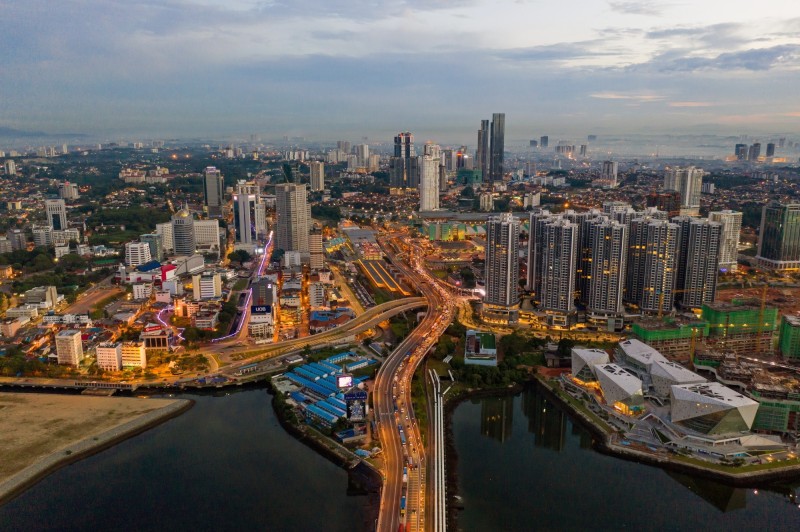
Image credit: Bloomberg
On July 8, 2024, Maybank Singapore welcomed 160 SME guests and business leaders to the Maybank Johor-Singapore Access conference. The event aimed to prepare attendees for business opportunities and provide a platform to share perspectives on the anticipated economic benefits within the Johor-Singapore Special Economic Zone (JSSEZ).
Alvin Lee, Country CEO of Maybank Singapore, highlighted the interconnected economies of Singapore and Malaysia through trade, investment, tourism, and labour, noting, “With the establishment of the Johor-Singapore Special Economic Zone (JSSEZ), we can expect increased cross-border trade and partnerships between the two countries.
“This will further enhance the economic ecosystems of both countries, foster positive synergies across various sectors, and strengthen economic connectivity and cooperation.”
Lee added, “Maybank sees itself as powering the continued growth of the Malaysia-Singapore corridor by facilitating cross-border business services, solutions, and digital networks to support our clients’ business needs. Maybank will play a significant role as the Malaysia-Singapore corridor grows and as the JSSEZ becomes a closer reality.”
Speakers and panelists at the event included:
- Dr. Chua Hak Bin, Regional Co-Head, Macro Research, Maybank Investment Banking Group;
- Mr. Samuel Tan, Executive Director, KVG International;
- Mr. Vinothan Tulisinathanzan, Director, Malaysian Investment Development Authority (MIDA);
- Mr. Ang Yuit, President, Association of Small & Medium Enterprises (ASME);
- Mr. Kong Chee Min, CEO, Centurion Corporation; and
- Dr. Melvin Heng, Group CEO, Thomson Medical Group.
- The JSSEZ has strong support from both Malaysia and Singapore, eager for greater economic integration, allowing freer movement of people, goods, and capital. Maybank has identified six key catalysts for the JSSEZ:
- 1. Support from the Malaysian King and Both Governments: The MOU for JSSEZ was signed on January 11, 2024, by Singapore’s Ministry of Trade and Industry (MTI) and Malaysia’s Ministry of Economy. The area will possibly cover 3,505 sq km, about 3 to 4 times the size of Singapore. Singapore is the second-largest foreign direct investor (FDI) in Iskandar, outside of Chinese investors.
- 2. Greater Land Connectivity: The causeway is already the busiest border crossing in the world. The Rapid Transit System (RTS) is scheduled to be completed by the end of 2026, integrating Immigration, Customs, and quarantine at each RTS station, making travel between the two countries seamless.
- 3. Supply Chain Shifts Amidst US-China Rivalry: As China’s share of US imports has fallen, US imports from ASEAN have grown. FDI into Malaysia has also rapidly increased, with many companies moving their manufacturing facilities from China to Malaysia.
- 4. Lower Operating Costs & Competitive Ringgit: Malaysia offers lower operating costs for Singapore companies and enjoys a favorable exchange rate. Salaries and rentals are lower in Iskandar, making it suitable for factories.
- 5. Easing Talent & Labor Shortage: The RTS will shorten the daily commute for Johor workers to Singapore.
- 6. The Green Transition: Singapore aims to import 30% of its renewable energy mix by 2035. Malaysia has lifted its renewable energy ban and will export 300 MW to Singapore.
- Maybank’s specialist teams are dedicated to offering business advisory services as a one-stop solution for businesses operating across the Malaysia-Singapore borders. Maybank helps businesses navigate the complexities of conducting business across borders and offers competitive financial and payment solutions to meet their cross-border business needs.
Source: https://sme.asia/new-opportunities-for-smes-in-the-johor-singapore-special-economic-zone/

